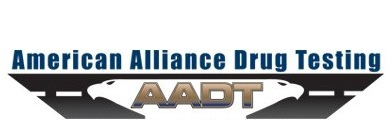Random Drug Testing for All
By Bill Current, President of WFC & Associates, LLC
Random drug testing of non-safety sensitive employees helps employers identify individuals who have a substance abuse problem while at the same time deterring others from starting or continuing to use drugs.
More companies are conducting random testing according to one national study. In 2011, 47 percent of employers indicated that they conduct random testing compared to 46 percent in 2010 and 39 percent in 2006. The study was conducted by the Society for Human Resource Management (SHRM) in conjunction with the Drug and Alcohol Testing Industry Association (DATIA).Why the growing interest in random testing? After all, there’s no suspicion of drug use, right? Yes, but there’s good reason to do it and the proof is in the numbers. In an annual report on drug test positivity rates issued by one major laboratory, we learn that the annual positivity rate in 2011 for pre-employment testing was 3.5 percent. Great news! Pre-employment testing weeded out (pardon the pun) nearly 4 out of every 100 job applicants because they could not pass a drug test they knew was coming.
The positivity rate for random testing, however, was 5.2 percent. In other words, even though pre-employment testing caught 3.5 percent of would-be drug abusing employees, another 5+ percent successfully slipped past the screening process somewhere back in time. And they weren’t identified until they got caught in a random test they didn’t know in advance was coming.
Years ago the federal government issued a report in which the opinions of drug abusing full-time employees about drug testing were presented. As it turns out, these employees do not like random drug testing. In fact, 40 percent indicated that they would not work for a company that conducted random drug testing (and 30 percent said they wouldn’t work for a company that conducted pre-employment testing). Voila! If you want to hire fewer drug users let job applicants know (and remind employees) that you conduct random drug testing. That’ll keep nearly half of them from even applying for work with your company.
State Laws and Random Testing
Most states permit employers to conduct random drug testing. A few states restrict it and only two states (Rhode Island and Vermont) and cities like (San Francisco and Berkeley, CA) actually prohibit it. Unfortunately for employers, no two states treat random testing exactly the same. For this reason, employers are well advised to become familiar with each state drug testing laws that applies to their companies. Some states have mandatory laws and others have voluntary laws, and they all treat random testing in a way that is unique.
For instance, among states with a voluntary drug testing law, only Wyoming mandates random testing in order for employers to qualify for a 5% workers’ compensation premium discount. Other states with similar laws, such as Florida, permit random testing but do not mandate it.
Some states with mandatory laws establish very specific random testing conditions. Here are just a few examples:
Connecticut – This state not only limits random drug testing to workers in safety-sensitive positions but the state actually issues a list of “high risk” occupations approved for random testing.
Texas and Indiana – Do not have state drug testing laws, random drug testing is not restricted.
California – In California, random testing is restricted by case law rather than statutory law. This means that a legal challenge resulted in a court decision that has established a legal precedence. In Smith v. Fresno Irrigation District, a case decided in 1999, the court found that random testing was not inherently unfair but should be limited to workers in safety-sensitive positions. Employee drug-testing programs are also regulated primarily by the privacy provision of the state constitution. Unlike most constitutional provisions, California’s privacy protection extends not only to the activities of government but also to private employers. Drug and alcohol testing programs clearly implicate individual privacy rights for both public and private employees. (See Hill v. National Collegiate Athletic Ass’n, 7 Cal. 4th 1 (1994).) This does not mean that testing is unlawful, however.
California’s Balancing Test
To determine whether a particular test is reasonable, the California Supreme Court has ruled that an employer’s justification for substance-abuse testing must be weighed against an employee’s or applicant’s right to privacy. (See Loder v. City of Glendale, 14 Cal. 4th 846 at 897-98 (1997).) To legally gather private information – such as whether an individual has recently used alcohol or an illegal drug – a private employer must be able to articulate a “competing” beneficial interest or important need for the test that justifies the intrusion on the individual. Public-sector employers, in contrast, typically must articulate a “compelling” interest to justify the “search” under the Fourth Amendment to the U.S. Constitution. Nevertheless, following Hill and Loder, state courts have applied the balancing equation in a variety of employment testing cases. These decisions, in turn, offer guidance to practitioners seeking to develop lawful testing policies.
In situations where a state has not established guidelines for random drug testing, employers may consider following “federal” random testing guidelines, even if they are not mandated to do so. The drug and alcohol testing regulations issued by the U.S. Department of Transportation (DOT) provide an excellent blueprint for random testing.
Drug testing is most likely permissible when (1) the employees operate in a field where injury to themselves or others is likely (such as operating a tractor or fork lift); and (2) the employer gives the employees at least 30-day’s notice of the test, including information explaining the substance abuse testing procedure. However, generally, when an employee is applying for a promotion, drug testing based on no suspicion of drug or alcohol use is impermissible.
Another common form of drug testing is post-accident – given after an employee is involved in an accident at work. A post-accident drug test is more defensible if there is reasonable suspicion that the accident was drug or alcohol related. Testing after every workplace accident regardless of any suspected link to drugs or alcohol could raise legitimate questions as to violation of employee privacy.
California case law does not specify what substances can be tested for. It is clear from case law, however, that an employer may test for marijuana use, even if the use is for medicinal purposes and thereby legal under state law. However, employers are generally prohibited from inquiring into applicants’ marijuana-related offenses that are more than two years old.
In California, the employer must pay for drug tests. An employee or applicant cannot be required to pay the cost of a medical examination required as a condition of employment or by law.
Implementing Random Testing
After you check for any legal requirements in the states where you have business operations, modify your company’s drug-free workplace policy to include who will be subject to random testing, how it will be conducted, and what the consequences will be for failing a random drug test.
Following is one possible way of addressing random testing in your policy:
“All employees will be subject to random, unannounced drug and alcohol testing. Employees subject to random testing will have an equal probability of being neutrally selected for such testing. The Company does not have the right to waive the selection of any employee who has been randomly chosen.”
“Random tests will be unannounced and performed at reasonable intervals throughout the year. The selection of employees for random drug and alcohol testing will be made by a scientifically valid method, such as a random number table or a computer-based random number generator that is matched with employee identification numbers (i.e., Social Security numbers, payroll identification numbers, or other comparable identifying numbers).”
Conclusion
Drug abuse and its impact on the workplace continue to be a problem in the U.S. Pre-employment testing is effective, but too many drug abusers are able to “game” the system by abstaining from drugs long enough to pass a pre-employment screen. Random testing has proven to be a powerful deterrent to illicit drug use among workers. Virtually every state permits random testing though conditions apply in some states and cities.
Note: This article is provided for educational purposes only and should not be relied upon as legal advice.
The reader retains full responsibility to ensure compliance with all applicable laws relative to drug testing.



